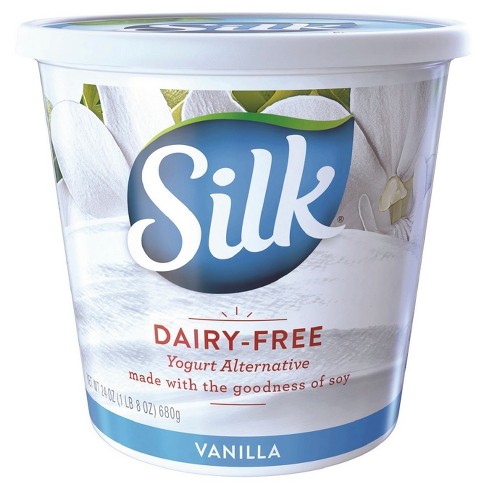Silk Non Dairy Yogurt
- Silk Non Dairy Yogurt Good Or Bad
- Is Silk Non Dairy Yogurt Vegan
- Silk Non-dairy Yogurt Ingredients
- Silk Non Dairy Strawberry Yogurt
Coconut Dream Non-Dairy Yogurt. Dreams come true with this delicious coconut yogurt, which comes in plain, blueberry, raspberry, strawberry, and vanilla flavors. Almond Dream Non-Dairy Yogurt. Made from real almonds, this yogurt packs 12 percent of your daily fiber and 20 percent of your calcium. The definition of a “natural yogurt” can vary since it is not a regulated term – it may simply be one made with all natural ingredients, Greek-style yogurt, yogurt made from a prior batch of yogurt, or a plain unsweetened yogurt. The best way to qualify your non-dairy yogurt as “natural” by any of these standards is to make it yourself. Always Delicious. So Delicious Dairy Free has been making dairy-free delights for over 30 years! We offer a variety of delicious foods and beverages that you can feel great about sipping, biting, pouring, scooping, licking, and chugging throughout your day. More Than a Snack - Cooking with Yogurt Alternatives.
Silk Non Dairy Yogurt Good Or Bad

Nutrition Facts Serv. Size 1 Container (150g) Servings Amount Per Serving Calories 200 Calories From Fat 100% Daily Value * Total Fat 11g 17% Saturated Fat 1g 4% Trans Fat 0g Cholesterol 0mg 0% Sodium 90mg 4% Total Carbohydrate 21g 7% Dietary Fiber 2g 8% Sugars 17g Protein 5g Vitamin A ** Calcium 10% Vitamin D 15% Vitamin C 4% Iron 4% ** Contains less than 2 percent of the Daily Value of these nutrients. * Percent Daily Values are based on a 2,000 calorie diet. Your daily values may be higher or lower depending on your calorie needs: Calories: 2,000 2,500 Total Fat Less than 65g 80g Saturated Fat Less than 20g 25g Cholesterol Less than 300mg 300mg Sodium Less than 2,400mg 2,400mg Total Carbohydrate 300g 375g Dietary Fiber 25g 30g Calories per gram: Fat 9 Carbohydrate 4 Protein 4 •.
A great Dairy Free Yogurt is Soy Yogurt. Soy Yogurt is a great alternative to the traditional yogurts made with animal by-products.
Is Silk Non Dairy Yogurt Vegan
As we liked to say here, Keep the milk inside the COW!!! Soy Yogurt is just as satisfying as dairy ones in every aspect. After trying Soy Yogurt you will be pleased on how a yogurt doesn't actually need any dairy in it to have the same benefits and taste as in yogurts made with dairy, cows milk. To the left you will find most of the current Soy Yogurt brands and each link will provide you with an good overview of what they offer. Nutritional data and ingredients will be listed so you can evaluate which will fit your taste buds.
Silk Non-dairy Yogurt Ingredients
Brief History of the Soybean: The Soybean was officially domesticated in 1100 B.C. By Chinese farmers. By the first century A.D. The Soybean began to spread across the world. It wasn't until 1904 that the Soybean was found to have a good amount of protein and oil to benefit the diets of Americans.
Silk Non Dairy Strawberry Yogurt
In the 1940's Soybean farming began to really take off and the U.S. Now produces 32% of the Soybeans in the world, next to Brazil. Soybeans are not only used for humans to eat, but livestock eat up the bean by a whopping 25 million tons each year!